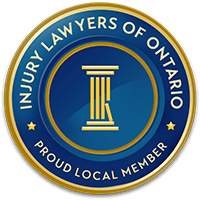|
|||||||||||
|
|||||||||||
 |
|||||||||||
|
|||||||||||
| We are pleased to announce that Nick de Koning has become a partner. | |||||||||||
 |
|||||||||||
Listed for
personal injury law 

|
|||||||||||
| To be included in the Canadian LEXPERT Directory is an acknowledgement of excellence by a practitioner's own peers and colleagues. | |||||||||||
Client Testimonials |
|||||||||||
We welcome your feedback |
|||||||||||
Deutschmann Law concentrates its practice in matters concerning car accidents, motorcycle accidents, pedestrian accidents,bicycle accidents, catastrophic injury, serious injury, brain injury, spinal cord injury and disability insurance claims. Serving Kitchener, Waterloo, Cambridge, Brantford, Ayr, Woodstock, Guelph, Milton, Elmira, Tavistock, Tillsonburg, Ingersoll, Norwich, Elora, Fergus, New Hamburg, Ontario and surrounding areas. “Deutschmann Law Professional Corporation” is practicing under the name Deutschmann Law. © 1998 - 2024 Deutschmann Law Accident, Injury Lawyers and Disability Lawyer Site Map Disclaimer Website by We Think Solutions Full Site | Mobile Site |















